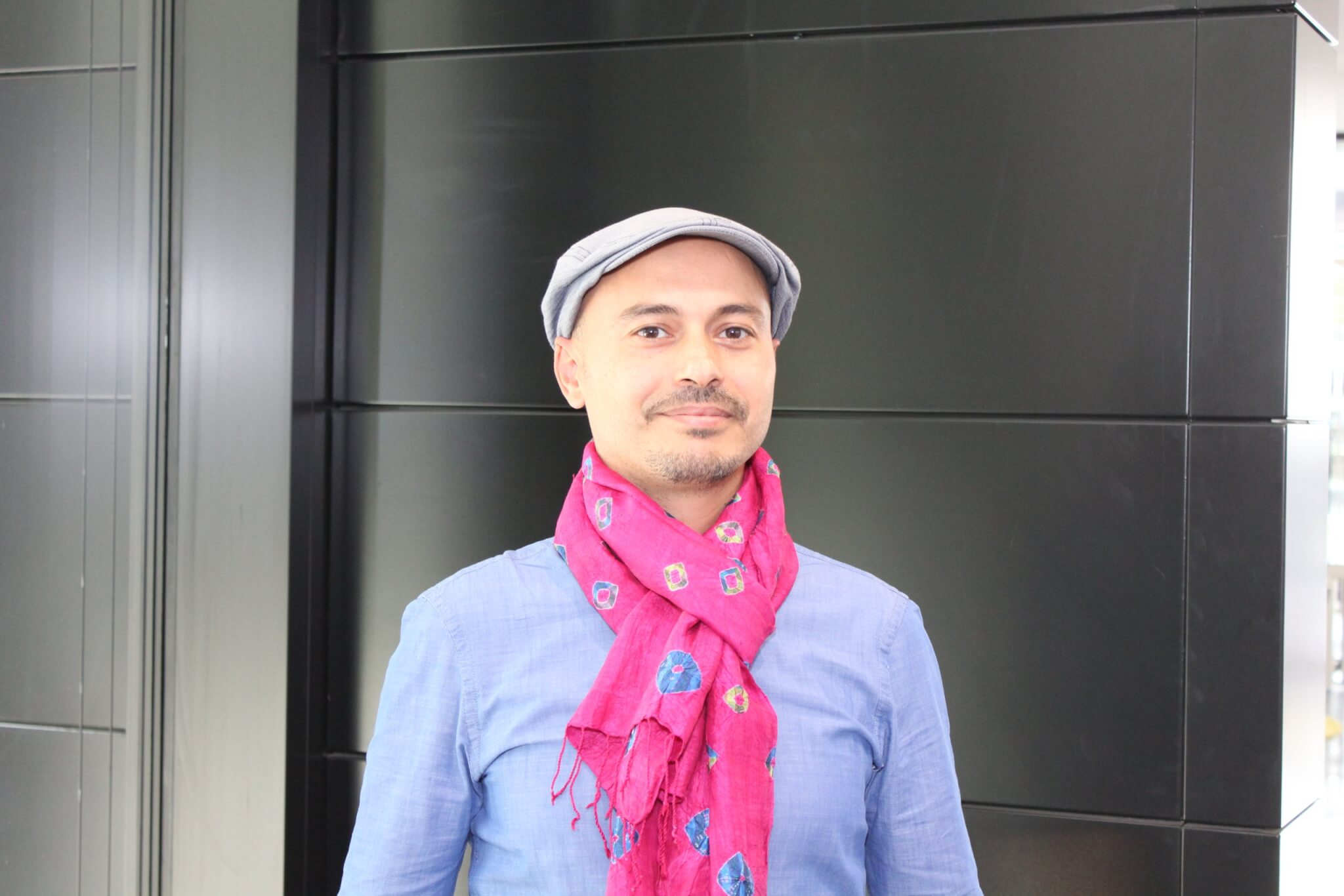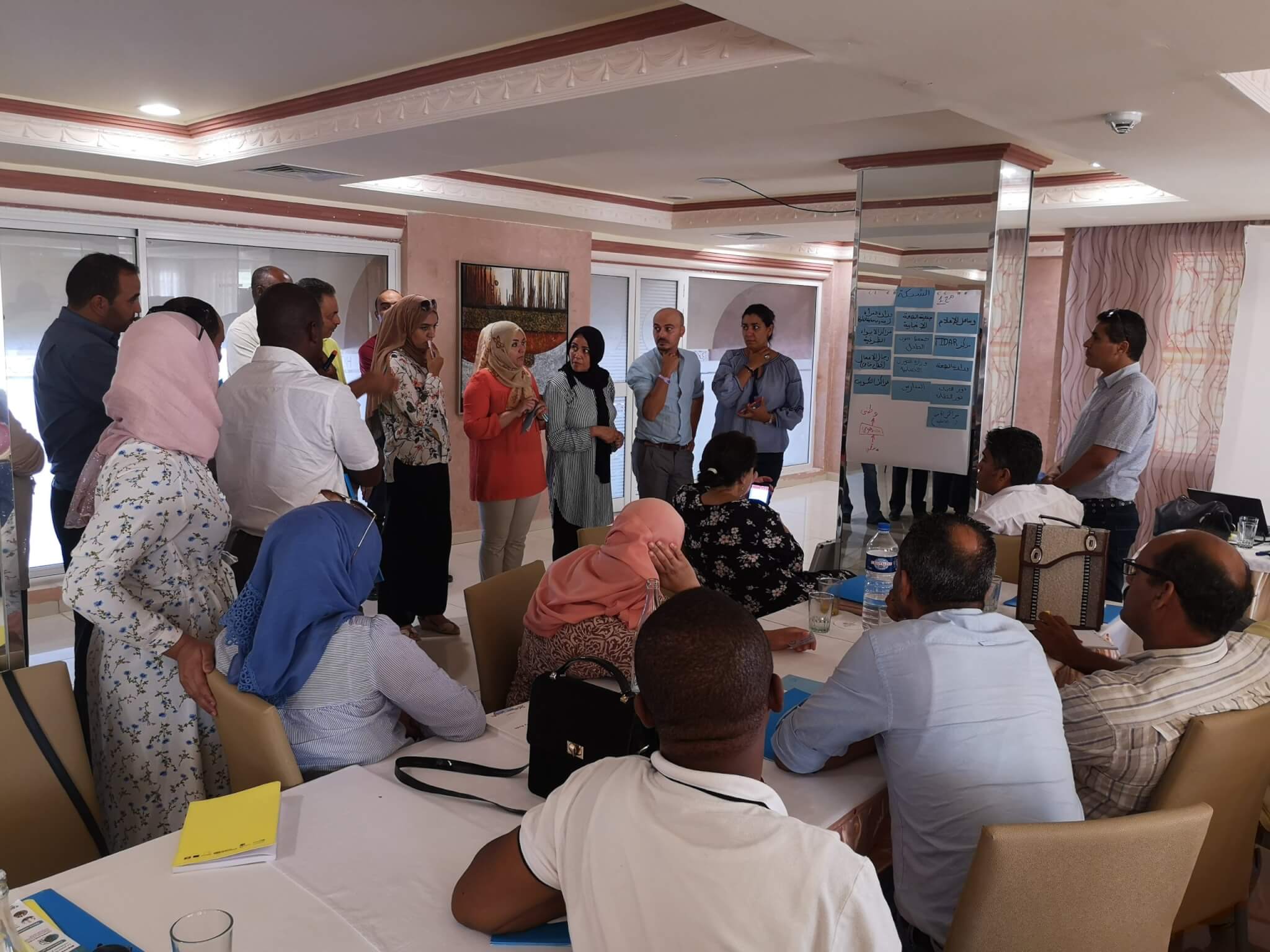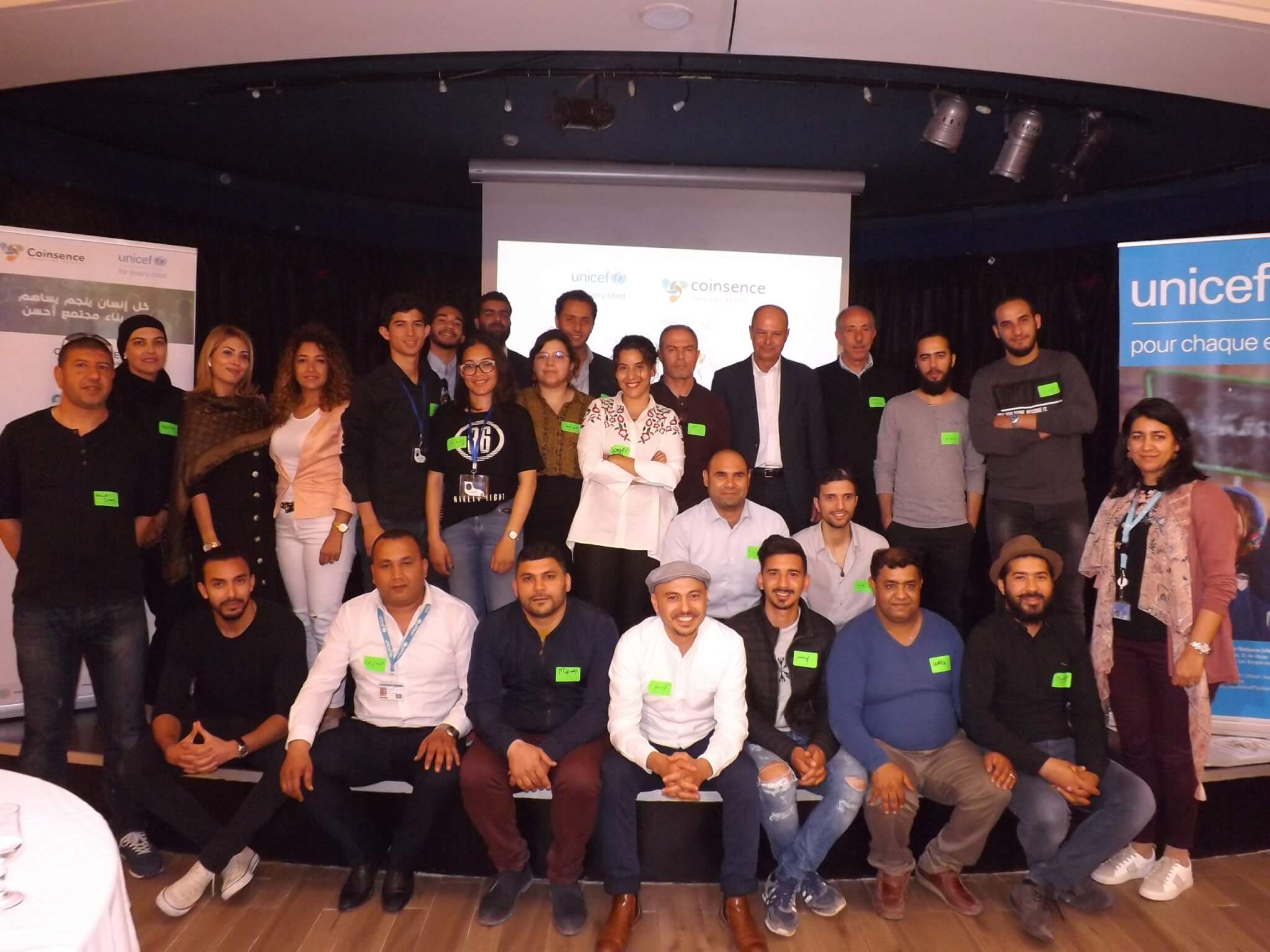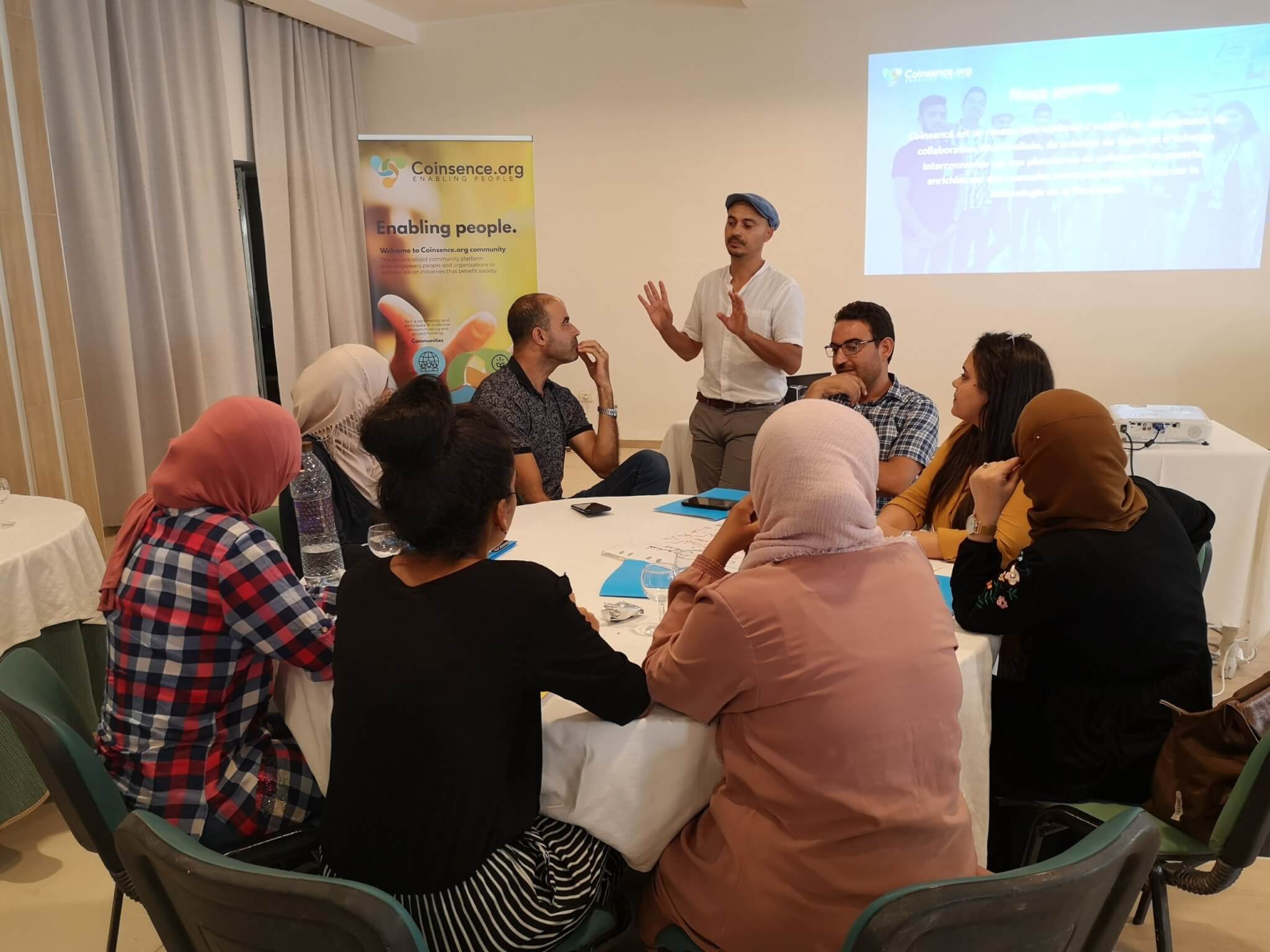In the PositiveBlockchain changemaker series, we talk to insipiring agents of change and impact advocates, in the industry and beyond.
Today, we talk to Karim Chabrak of Coinsence about his work in community building and decentralized value creation!

Karim is founder of coinsence.org, a decentral collaboration, value creation and exchange platform that enables communities to create their own impact currencies to fund SDG related projects and mobilize resources. Coinsence project is one of 6 global cohort projects which received funding from UNICEF Innovation fund and one of the first projects receiving ETH from UNICEF crypto fund that is supported by the Ethereum foundation.
Karim has an engineering and research background in telecommunication, is senior expert for network strategy and innovation and is delegate of Deutsche Telekom in 3GPP telecommunication standardization organization. Besides tokenized economy and fair finance, Karim’s main interest area is how to use technologies to create new economic and governance models which are better capable to tackle today’s social and environmental challenges.
Let’s start at the beginning – every changemaker needs to start somewhere. Do you have a specific story about what brought you on this path?
Already as a child, my mother started explaining me how the financial system works, and I started questioning the bugs and the long-term consequences. But I trusted at that time that the rules of the system are based on scientific facts and must make sense, and that governments will care about social and environmental aspects when problems become serious.
After the financial crisis in 2008, I started thinking about alternatives. For me, I could not find any logic justification why people still rely on a monetary system which is not transparent, which they do not control, and which is not mainly designed to consider local needs, personal interests (demands of individuals over those of corporates and institutions) and the long-term global challenges.
The Arabic revolution 2011 was the initiator for me to start thinking about alternative financial and governance systems. I could not understand that in the digital age educated youth keep wait over years to get jobs and to serve others interests instead of starting jointly creating value for themselves. I could not understand in a connected world that free humans still need to protest and fight against old structures while they are able to build complete new – even global – financial, governance and economic systems using the internet. I started looking for more peaceful and effective ways to empower people and enable political power shifts and economical transitions. Decentral organization tools, a better coupling between financial instruments and the collective intelligence of the people, and full transparency of monetary flows and value transactions seemed to be the right direction to think.
Luckily, I was not the only one believing that people can and have to create their own currencies (financial?) and governance systems, to enable change and to solve their own problems. Blockchain technology was around the corner and the tech ecosystem started innovating in all possible direction I could think about.
My firm believe in the potential of alternative currencies and economy came at a time I was analyzing corporate cultures and business operation models. looking for better solutions for effective innovation management, flexible and efficient cross-silo resource sharing and agile collaboration. At that time, it became obvious very fast that decentral governed open value creation ecosystem powered by different tokenized assets have the economic and social potential to bring about a real change.

You have an incredible wealth of experience to draw from. What were your favorite projects or initiatives to work on?
The favorite projects or initiatives to work on for me are generally those which create a positive impact on society and environment. Especially when working on big challenges with professional and inspiring people who really care, when working in a diverse and dynamic environment with reasonable autonomy, work gives life a sense and becomes a tremendous source of self-fulfillment and happiness.
My favorite project to work on is still Coinsence, where we face constantly new challenges. It gives me the opportunity to meet daily great people, discover new solutions and learn new things. Especially our work with UNICEF in Tunisia gives me a unique opportunity to meet great people in the civil society and from different institution, who really care about future generations and who are fully devoted to their mission.
We are currently focusing on setting up DAO’s (decentralized autonomous organization) to use the received ETH Crypto fund and mobilize the tech community to work on innovative solutions which contribute to positive impact on sustainable development goals SDG’s. Enabling people to propose ideas and decide about fund distribution requires careful design of the framework and a lot of advocacy and community building work to shift mindsets and ensure reaching positive results.
What are the most exciting things you are currently working on?
Currently, I am working on adapting the Coinsence concept and solution to faster scale the community and increase the synergies and impact of the ecosystem. Besides community building and partner acquisition, I am working on the re-design of our technical solution, to meet at the same time the flexibility and security requirements we expect from a blockchain based solution and to offer on the other side our members simpler interfaces and a seamless user experience.
The most exciting thing is still the exchange with the great innovators and change makers within our network and the valuable and passionate discussions with people on our solution and its applications.

Based on your experience, what do you think are the 5 biggest roadblocks on the way to a more sustainable future?
I see that short terms thinking of decision makers, biased by personal, organizational and national interests, is the main roadblocks on the way to a more sustainable future. We have on one side national politics driven too often by people who do not understand global finance and economy and who are far from innovation and technology. Companies on the other side are still essentially measured by profit generation and shareholder value. Both act in a global ecosystem with multi-national corporates and a financial system with a high level of speculation.
The missing common vision, the lack of global democratic decision-making frameworks, and the lack of global monitoring and steering instruments force limit policy makers in creating global solutions, containing the exploitation of the environment, and create stable social systems with fair working conditions.
We have today many grassroots initiatives, social startups and growing movements in the society and within organization which are more and more aware of the problems and which are able to offer better solutions. The challenge is still how to mobilize resources, create synergies and manage transformation in a situation were still big decisions are made top-down in silos by people in the comfort zone who tend to do business as usual.
The power asymmetry between those who care about sustainability and society and those who benefit from fossil oil and financial speculation poses a big challenge for social entrepreneurs, innovators and change makers. Besides the big financial power to gamble and the excessive forces to control resource, the old establishments still have strong instruments to influence consumer behavior and public opinion. For me, it is always a challenge to find visionary leaders who invest the time to think out of the box beyond the current status quo, who understand alternative transformation strategies and who consider trying other ways and dare taking actions.
And it needs politicians who question the existing economic models which are measured based on growth of financial transactions (GDP). Wouldn’t it be great to hear a politician saying “we have to use technology to reduce workload and remove jobs to ensure that people get more time for social outreach and society as a social mesh can flourish.“. I believe this should be the right direction and that we can design the right cooperation models that support a sustainable growth of well-being. But it is not easy to talk with people about post growth economy, about reduction of production and consumption, or about cooperation efficiency and commons when their biggest fear is to lose their jobs and their homes.
Most today’s funding instruments are designed for extractive business models and for private equity creation. It is almost impossible for entrepreneurs to get funding for building transparent, sustainable and efficient prosumer ecosystems which are based on open value creation, decentral organization and distributed ownership.
Which role does technology, especially blockchain, play in this future? What role does it play along the way?
 Distributed ledger technology combined with further sophisticated analytics and prediction algorithms could completely change global economy and the governance structures. Blockchain will enable people and communities to build completely new decision-making, resource management, value creation and exchange ecosystems. Blockchain offers new mechanisms to couple financial performance with the democratic will of people and with the social and environmental impact.
Distributed ledger technology combined with further sophisticated analytics and prediction algorithms could completely change global economy and the governance structures. Blockchain will enable people and communities to build completely new decision-making, resource management, value creation and exchange ecosystems. Blockchain offers new mechanisms to couple financial performance with the democratic will of people and with the social and environmental impact.
Sovereign and reliable digital identities will be the basis for a real change, on which any social, organizational or economic structure can be built. Connected devices and internet of things could deliver the needed data to build decentral value creation chain and ecosystems that can leverage common production tools and further create shared assets and resources.
Transaction fees and demurrage, flexible impact-based taxations can be implemented globally and bound to currency specific policies and governance frameworks.
Blockchain started already challenging different financial, economic and organizations models and enabling new form of cooperation between communities. The benefits of Blockchain related to giving people more control and enabling them to create value at lower cost is motivating more and more groups to experiment, iterate and scale. It’s just a matter of a few year, and we will start seeing a shift in society. Especially the mindset of the youth will change the more they become aware about their own potential and the powerful tools they have in their hands.
Considering current global Covid-19 challenge, do you see the potential added value of Blockchain?
Blockchain can be very helpful when suddenly, different stakeholders and individuals need to work together, must commit to certain deliverables and have to build trust without having an established organizational or legal framework. Smart contracts can help introducing reliable and flexible decentral processes to easily engage diverse organizations and individuals. Based on different social and business agreement, communities and organizations can create for example short-term liquidity to mobilize resources and fund projects addressing common challenges like Corona. We are currently introducing with partners in Tunisia an impact currency to fund innovative projects and community initiatives coming from different hackathons and associations. Here, companies can instead of donating money, also deliver resources now to projects or can offer in the future discounts to their customers who contributed to projects. The coins are used here to make projects, resources and transactions transparent and accountable. The engagement of each member in the network becomes visible and rewardable.
What is your advice for others that want to facilitate change in their community, industry, or in their life in general?
My clear advice for community and industry leaders is to learn more about technology and about alternative financial and economic models, to consider experimenting, introducing and using impact-oriented community currencies and become advocates for better solutions and a real change.
How can we best follow your work?
https://www.facebook.com/coinsencetunisia/
de.linkedin.com › company › coinsencetn
All members, projects, activities and transactions are visible on our platform which can be joined under community.coinsence.org
Karim, thank you very much for this insightful and inspiring interview, and for your great work in the field!

